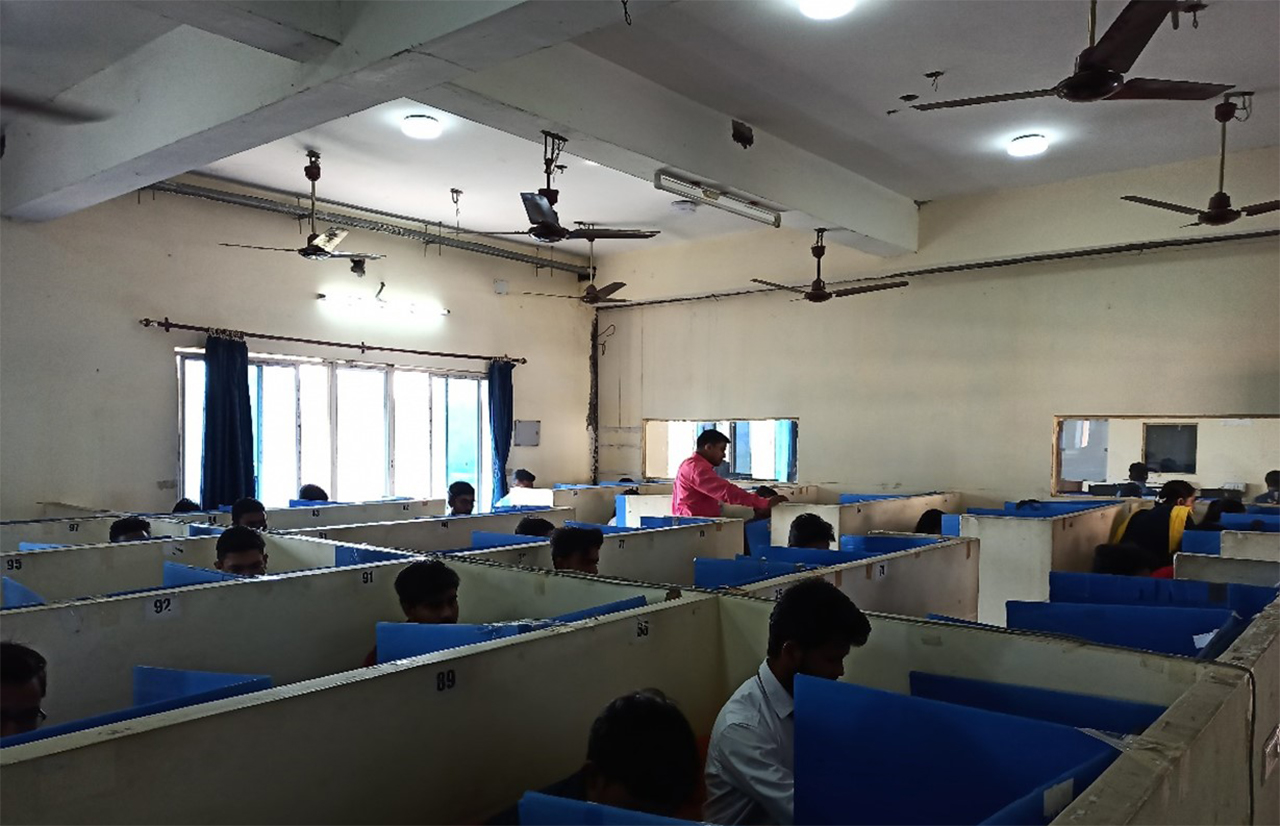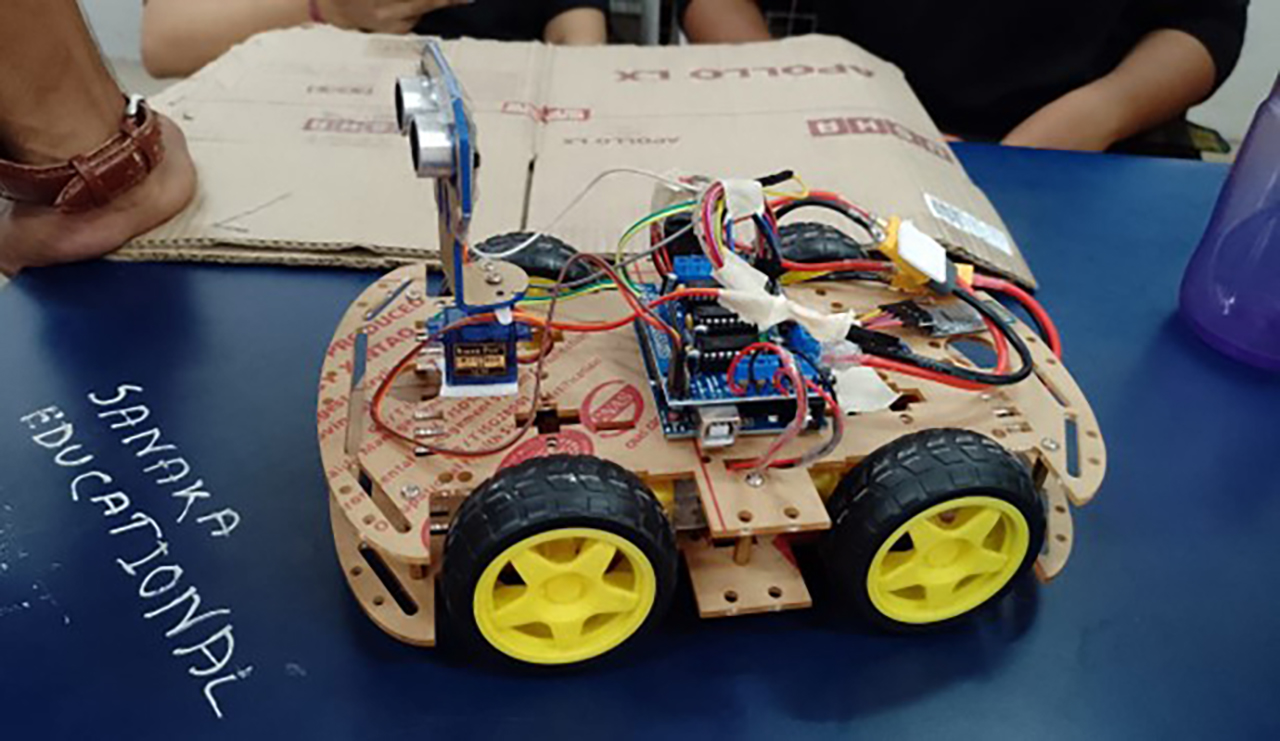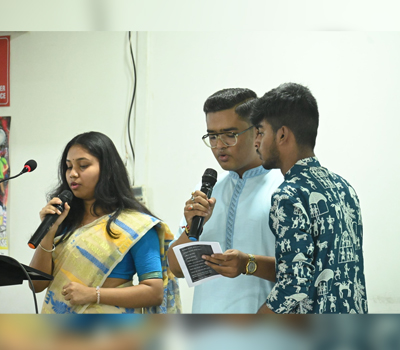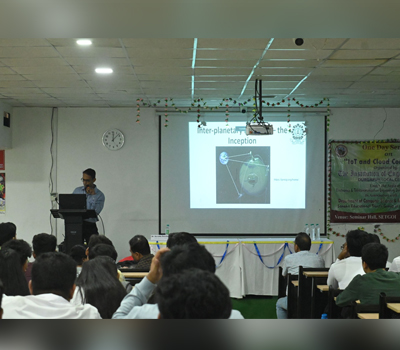Introduction to the Undergraduate Programme
Bachelor of Technology (B.Tech) in Computer Science & Engineering (CSE) is a highly demanding career choice among engineering aspirants.Computer Science & Engineering encompasses a variety of areas that includes computation, like analysis of algorithms, programming languages, program design, software, Artificial Intelligence & Robotics, computer hardware etc. Computer Science engineering has roots in electrical engineering, mathematics, and linguistics. In the past Computer Science was taught as part of mathematics or engineering departments and in the recent days it has emerged as a separate engineering field.
Who is the Programme for?
The programme is designed for those who are interested to make a career in-
| Major Career Opportunities | Higher Education Opportunities | Alternative Career Options |
|---|---|---|
|
|
|
Curriculum Structure
| Sl No. | Category | Breakup of Credits | Credit Distribution % |
|---|---|---|---|
| 1. | Humanities & Social Sciences + Management Courses | 12 | 7.5 |
| 2. | Basic Science Courses | 24 | 15.0 |
| 3. | Engineering Science Courses | 26 | 16.25 |
| 4. | Professional Core Courses | 58 | 36.25 |
| 5. | Project / Internship | 15 | 9.37 |
| 6. | Professional Elective Courses | 12 | 7.50 |
| 7. | Open Elective Courses | 12 | 7.50 |
| 8. | Mandatory Courses | 1 | .63 |
| Total Credits | 160 | 100 | |
Curriculum Details
Laboratories

Data Structure & Algorithms Laboratory
In Data Structure & Algorithms Lab for a given problem student will able to implement search, or a given problem of Stacks,....

Data Structure & Algorithms Laboratory
In Data Structure & Algorithms Lab for a given problem student will able to implement search, or a given problem of Stacks, Queues and linked list and also analyze the same to determine the time and computation complexity for various sorting algorithms as Selection Sort, Bubble Sort, Insertion Sort, Quick Sort, Merge Sort, Heap Sort etc.
LIST OF SOFTWARE
- Dev C++ 5.50
Computer Organization & Architecture Laboratory
Students will gain practical experience with designing and implementing concepts of microprocessor systems....
Computer Organization & Architecture Laboratory
Students will gain practical experience with designing and implementing concepts of microprocessor systems and understand the converter circuits using basic gates and various circuits for ALU, data path and control units. They will be using various microprocessors for simple arithmetic operations, loop, pointer, counter, interrupt, and interfacing. This lab defines what is seen on the machine interface, which is targeted by programming languages and their compilers.
LIST OF SOFTWARE
- Xilinx 2021.1
Software Engineering Laboratory
Software engineering is a detailed study of engineering to the design, development and maintenance of software. Software engineering ....
Software Engineering Laboratory
Software engineering is a detailed study of engineering to the design, development and maintenance of software. Software engineering was introduced to address the issues of low-quality software projects. This Lab is aimed to provide you hands-on experience with different aspects of Software Engineering and UML including requirements identification, DFD, behavioral and structural design using UML diagrams, implementation, testing, and so on.
LIST OF SOFTWARE
- Microsoft Office 21
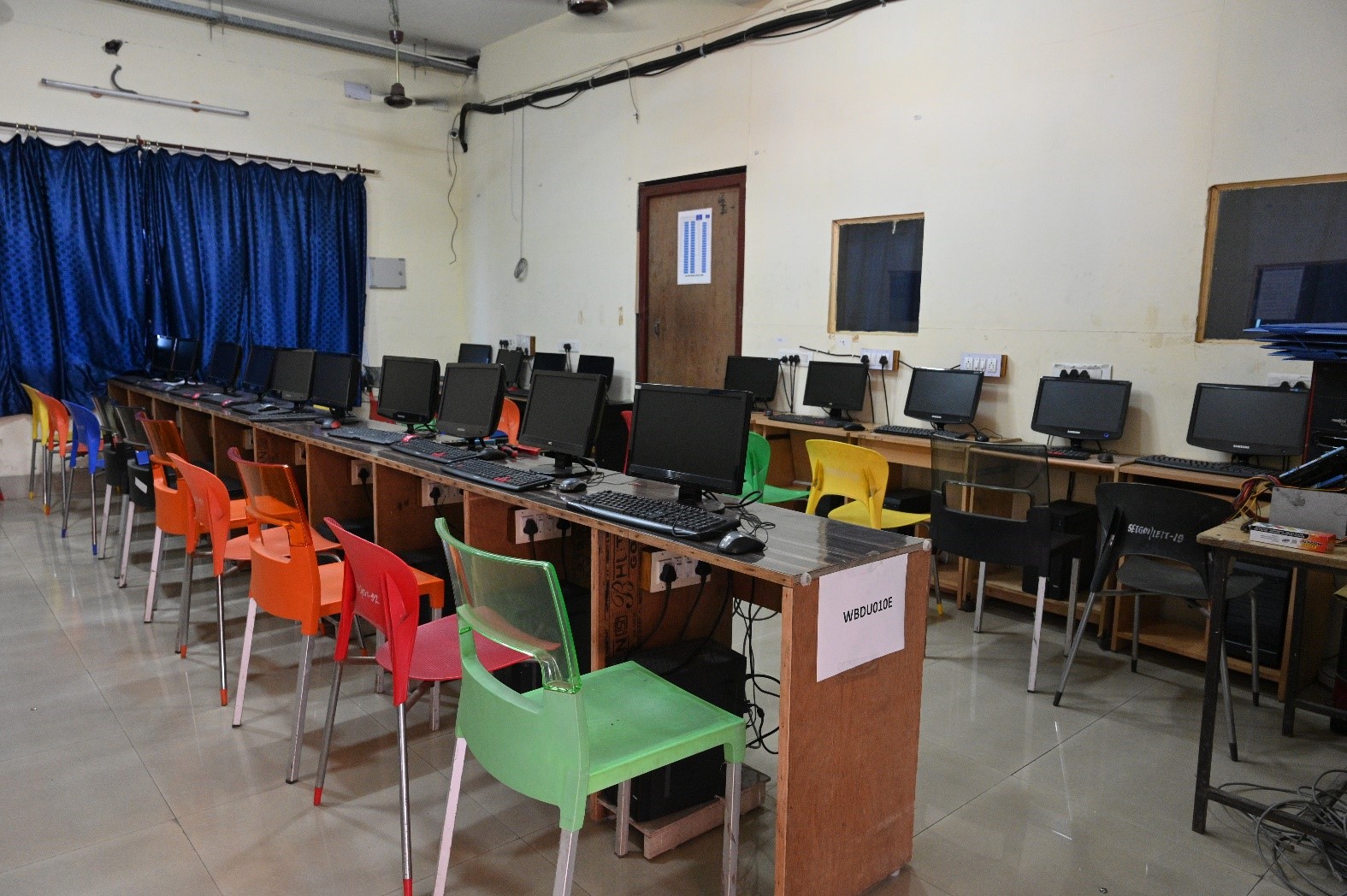
Operating Systems Laboratory
The goal of Operating Systems Lab is to have students understand and appreciate and will realize the concepts of....

Operating Systems Laboratory
The goal of Operating Systems Lab is to have students understand and appreciate and will realize the concepts of operating systems, designing principles of operating systems and implementation of operating systems process management, memory management, file systems, virtualization, and distributed operating systems.
LIST OF SOFTWARE
- Linux(Ubuntu 20.04)
- Microsoft Windows 11
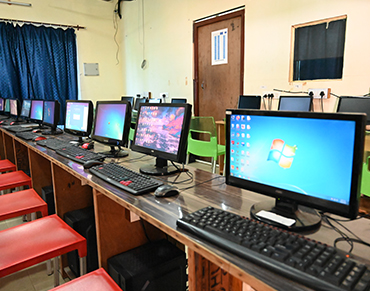
Object Oriented Programming Laboratory
Object-oriented programming (OOP) is a style of programming characterized by the identification of classes of objects closely linked with....

Object Oriented Programming Laboratory
Object-oriented programming (OOP) is a style of programming characterized by the identification of classes of objects closely linked with the methods (functions) with which they are associated. It also includes ideas of inheritance of attributes and methods. This lab reinforces understanding of basic object oriented programming concepts (objects, classes and subclasses, methods) and their expressions.
LIST OF SOFTWARE
- JDK 22
Database Management Systems Laboratory
This lab shows working on existing database systems, designing of database, creating relational database, analysis of table design.....
Database Management Systems Laboratory
This lab shows working on existing database systems, designing of database, creating relational database, analysis of table design. The lab course also provide practical knowledge to understand advanced database concepts such as Data mining and Big Data Analysis. Students will have to deal with this kind of data inconsistency while allowing users to access data concurrently to ensure efficient transaction management without data corruption.
LIST OF SOFTWARE
- Oracle 21c
Programming Practice Laboratory
Programming practice Lab is to provide an environment for learning and better understanding of the basic concepts and.....
Programming Practice Laboratory
Programming practice Lab is to provide an environment for learning and better understanding of the basic concepts and methods of computer programming. This lab encourages students to focus on developing programming skills on c or Open Source Language like Python for major six sections as Documentation, Link, Definition, Global Declaration, main() Function, Subprograms. Python has many libraries to form amazing programs.
LIST OF SOFTWARE
- Python 3.10.5
Computer Networks Laboratory
The Computer Networks Laboratory offers the typical components of high-performance computer networking as.....
Computer Networks Laboratory
The Computer Networks Laboratory offers the typical components of high-performance computer networking as found in large corporate networks or service providers. Students have to work on practical experiments, projects and research work related to courses such as Computer Networks, Wireless Networks, Mobile Communications, Software-Defined Networking, Internet of Things, Future Networks (5G) and Cloud Computing.
LIST OF SOFTWARE
- Linux(Ubuntu 20.04)
IoT and Machine Learning Laboratory
In this laboratory several microcontroller boards like Arduino, ESP32, Raspberry pi, etc are used to collect.....
IoT and Machine Learning Laboratory
In this laboratory several microcontroller boards like Arduino, ESP32, Raspberry pi, etc are used to collect and process data by using machine learning algorithms taken from different sensors like temperature, pressure, ultrasonic, etc. Students use to make different IoT based project to implement different real-life scenarios.
LIST OF SOFTWARE
- Python 3.10.5
- Matlab 5.2
Activity Gallery
Career Guidance & Mentoring
- Faculty Mentor monitors the personal and professional development of individual student mentee.
- Guides curricular, co-curricular and extra-curricular activities.
- Mentor establishes a personal relationship and addresses the various issues of the student.
DEPARTMENT VISION:
The Computer Science & Engineering department strives to be well-recognized for outstanding education and research, leading to excellent professionals and innovators who can positively contribute to society.
DEPARTMENT MISSION:
- DM1: Have a learning environment and infrastructure that provide quality education, training, and research.
- DM2: To bring the learners on par with the most recent scientific and technological advancements and make them industry ready.
- DM3: To foster employability, entrepreneurship, leadership capabilities with ethics, and a research mindset
PROGRAM EDUCATIONAL OBJECTIVES (PEO):
- PEO 1: Apply computer science blended with mathematics and engineering to model computing systems.
- PEO 2: Communicate effectively with team members, engage in applying technologies and lead teams in industry and research.
- PEO:3 Engage in lifelong learning, career enhancement and adapt to changing professional and societal needs.
PROGRAM SPECIFIC OUTCOMES (PSO):
- PSO 1: Gain proficiency in designing effective software by utilizing best techniques and practices of Software Development and Project Management while working in appropriate computing environments.
- PSO 2: The ability to use computer science to create solutions to fulfil societal needs, professional paths for entrepreneurs, and willingness for higher education.
PROGRAM OUTCOMES (PO):
| PO1 | Engineering Knowledge: Apply the knowledge of mathematics, science, engineering fundamentals, and an engineering specialization to the solution of complex engineering problems. |
|---|---|
| PO2 | Problem Analysis: Identify, formulate, review research literature, and analyse complex engineering problems reaching substantiated conclusions using first principles of mathematics, natural sciences and engineering sciences. |
| PO3 | Design/Development of Solutions: Design solutions for complex engineering problems and design system components or processes that meet the specified needs with appropriate consideration for the public health and safety, and the cultural, societal, and environmental considerations. |
| PO4 | Conduct Investigations of Complex Problems: Use research-based knowledge and research methods including design of experiments, analysis and interpretation of data, and synthesis of the information to provide valid conclusions for complex problems |
| PO5 | Modern Tool Usage: Create, select, and apply appropriate techniques, resources, and modern engineering and IT tools including prediction and modelling to complex engineering activities with an understanding of the limitations. |
| PO6 | The Engineer and Society: Apply reasoning informed by the contextual knowledge to assess societal, health, safety, legal and cultural issues and the consequent responsibilities relevant to the professional engineering practice. |
| PO7 | Environment and Sustainability: Understand the impact of the professional engineering solutions in societal and environmental contexts, and demonstrate the knowledge of, and need for sustainable development. |
| PO8 | Ethics: Apply ethical principles and commit to professional ethics and responsibilities and norms of the engineering practice. |
| PO9 | Individual and Team Work: Function effectively as an individual, and as a member or leader in diverse teams, and in multidisciplinary settings. |
| PO10 | Communication: Communicate effectively on complex engineering activities with the engineering community and with society at large, such as, being able to comprehend and write effective reports and design documentation, make effective presentations, and give and receive clear instructions. |
| PO11 | Project Management and Finance: Demonstrate knowledge and understanding of the engineering and management principles and apply these to one’s own work, as a member and leader in a team, to manage projects and in multidisciplinary environments. |
| PO12 | Life-long Learning: Recognize the need for, and have the preparation and ability to engage in independent and lifelong learning in the broadest context of technological change. |






